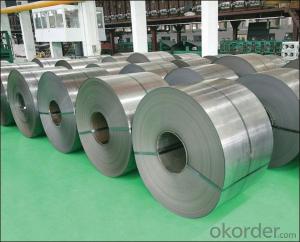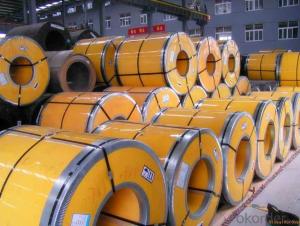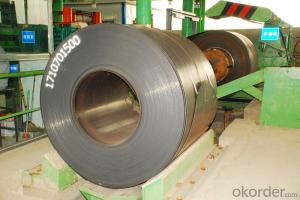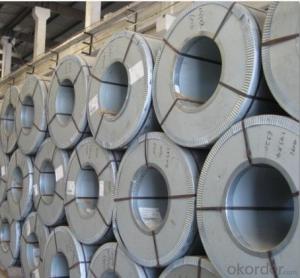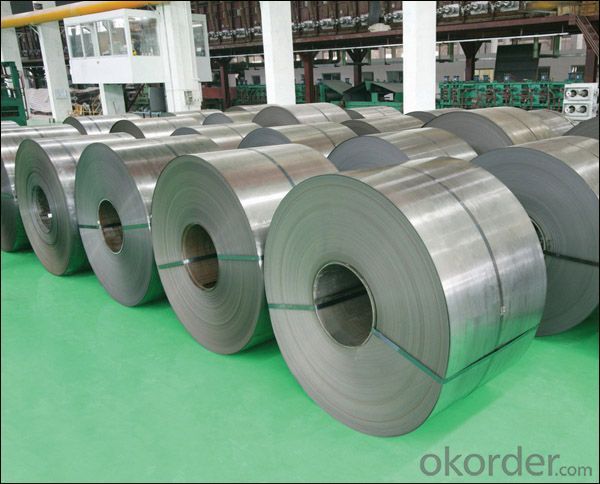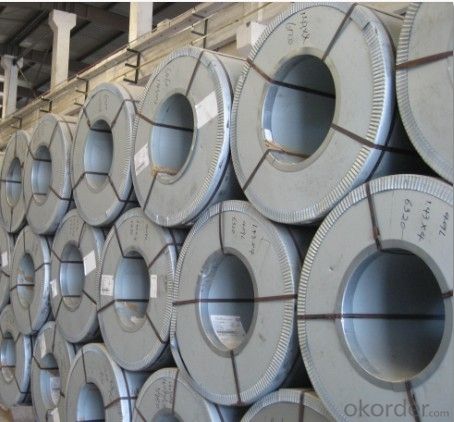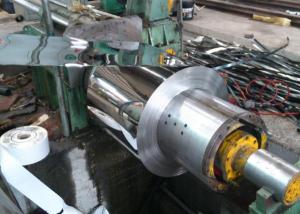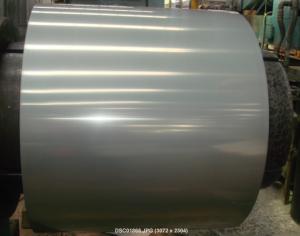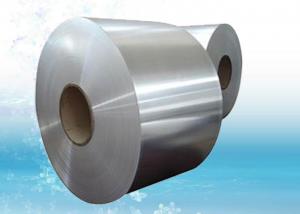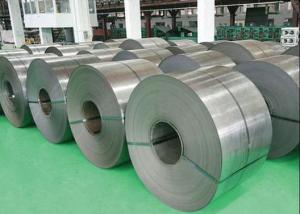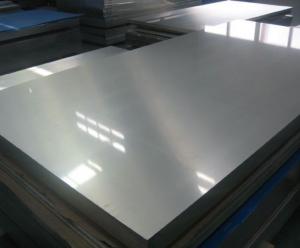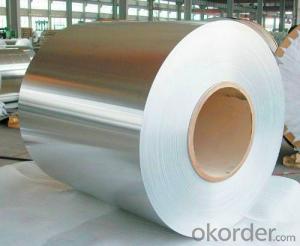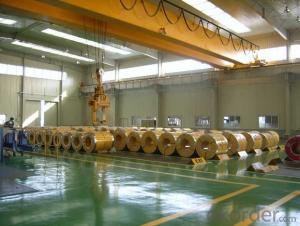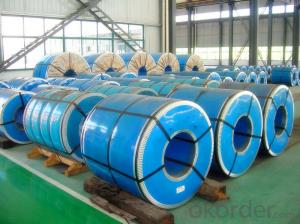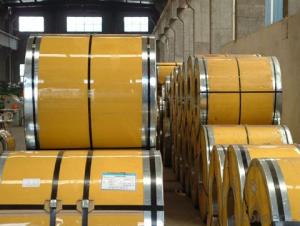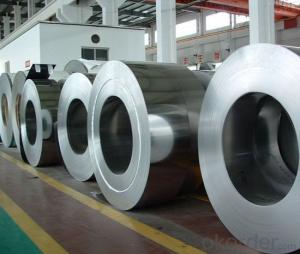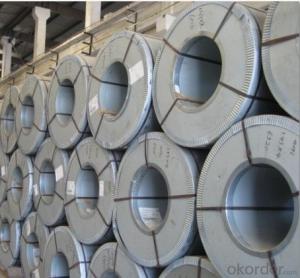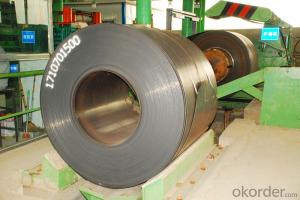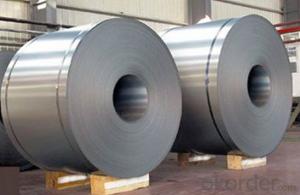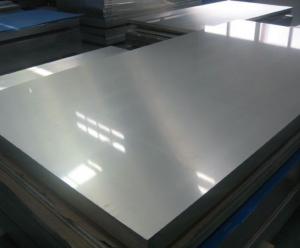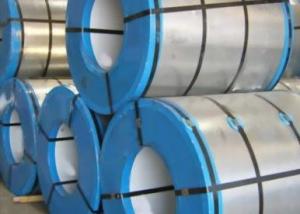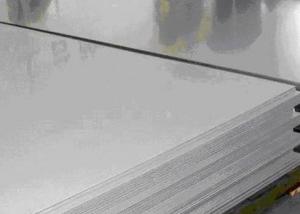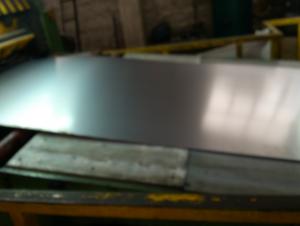Stainless Steel Coil 201 Hot Rolled Narrow Coil J1-J4
- Loading Port:
- Lianyungang
- Payment Terms:
- TT OR LC
- Min Order Qty:
- 500 m.t.
- Supply Capability:
- 8000 m.t./month
OKorder Service Pledge
OKorder Financial Service
You Might Also Like
Hot Rolled Stainless Steel Coil
201 Narrow/Wide Strip No.1 Finish
Packaging Detail: For customer's requirement
Delivery Detail: 10-30days
201 Hot Rolled Stainless Steel Coil Specifications
THK:2.3/2.5/3.0/4.0mm
Width:485/510/550/610/1010/1240mm
Face:No.1
201 Hot rolled stainless steel Coil Application
Stainless steel is a production which not easy rust,acid resistance and corrosion resistance,so it is widely
used in light industry,heavy industry,daily necessities and the decoration industry.
201 Hot Stainless Steel Coil Chemical Composition(WT%)
(C):≤0.15, (Si):≤0.75, (Mn):5.5~7.50, (Cr):16.0~18.0, (N):≤0.25, (Ni):3.50~5.50, (P):≤0.060, (S):≤0.030
201 Hot Rolled Stainless Steel Coil
Strength Of Extension:100,000 To 180,000 Psi;
Yield Strength:50,000 To 150,000 Psi
Elongation :55 To 60%;
Modulus Of Elasticity:29,000,000 Psi;
Density :.280lbs/Cubic Inch(7.93g/Cm3)
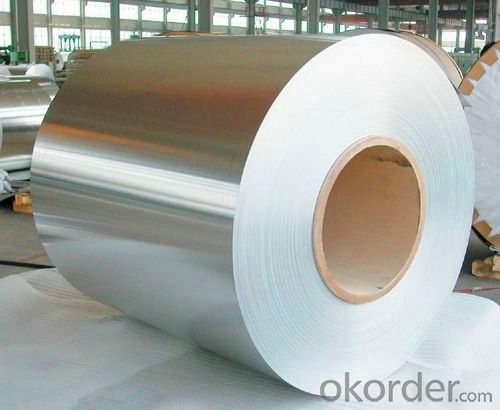
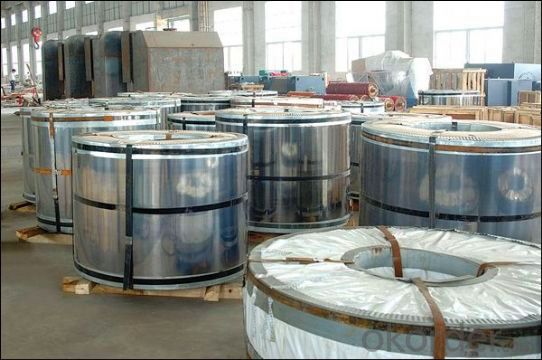
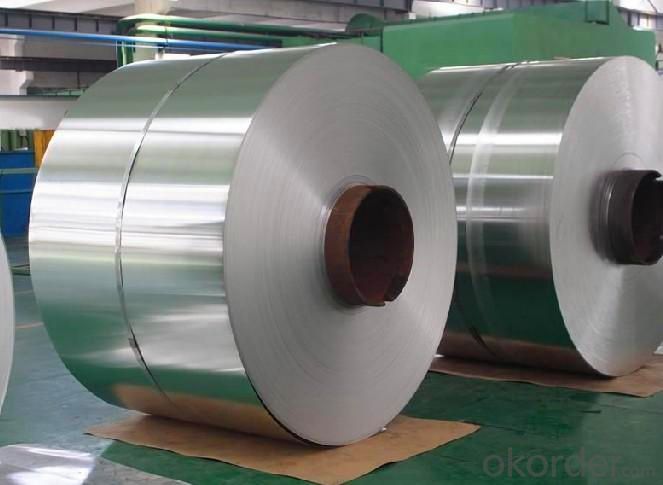
- Q: Can stainless steel strips be used in the production of cutlery?
- Yes, stainless steel strips can be used in the production of cutlery. Stainless steel is a popular choice for cutlery due to its durability, resistance to corrosion, and easy maintenance. Stainless steel strips can be shaped and formed into the desired cutlery shapes, providing a sturdy and long-lasting product.
- Q: How are 111 stainless steel strips manufactured?
- The manufacturing process of 111 stainless steel strips involves several steps. Firstly, raw materials are selected, which typically include iron ore, chromium, nickel, and other alloying elements. These materials are carefully measured and combined in the desired proportions to create the stainless steel alloy. Next, the raw materials are melted in a high-temperature furnace. This molten metal is then poured into a continuous casting machine, where it is shaped into long slabs or billets. These slabs are then allowed to cool and solidify. After solidification, the slabs are reheated in a furnace to a specific temperature to make them more malleable. They are then passed through a hot rolling mill, where they are reduced in thickness and lengthened into long strips. The rolling process is repeated several times to achieve the desired thickness and quality. Once the strips reach the desired thickness, they are annealed in a heat treatment furnace. Annealing helps to relieve internal stresses and improve the mechanical properties of the stainless steel. This process involves heating the strips to a specific temperature and then gradually cooling them. To enhance the surface finish and remove any imperfections, the strips go through a pickling process. This involves immersing them in an acid solution that removes scale, oxides, and other impurities from the surface. After pickling, the strips undergo a cold rolling process. This process involves passing the strips through a series of rollers under high pressure, which further reduces their thickness and improves their surface finish. To achieve the desired dimensions and tolerances, the strips are then cut into the required lengths using shearing or slitting machines. They may also undergo additional processes such as edge trimming, edge rounding, or surface polishing, depending on the specific requirements of the application. Finally, the finished stainless steel strips are inspected for quality, including checking for dimensional accuracy, surface defects, and mechanical properties. They are then packaged and prepared for shipment to customers who use them in various industries such as automotive, construction, appliances, and many others.
- Q: Are stainless steel strips suitable for storage tanks?
- Yes, stainless steel strips are suitable for storage tanks. Stainless steel is known for its corrosion resistance, durability, and strength, making it an excellent material choice for storage tanks. It can withstand harsh environments, resist chemical reactions, and maintain the integrity of the tank's contents. Additionally, stainless steel strips can be easily fabricated and welded to create tanks of various shapes and sizes, making them a versatile option for storage applications.
- Q: What is the difference between annealed and tempered stainless steel strips?
- Two distinct heat treatment processes, annealing and tempering, lead to diverse properties and characteristics in stainless steel strips. Annealing involves heating the stainless steel strip to a specific temperature and gradually cooling it, often in a controlled environment. This method alleviates internal stresses, enhances ductility, and improves machinability. Annealed stainless steel strips possess a lower hardness, making them pliable and easier to manipulate into different forms. They also exhibit enhanced resistance to corrosion and reduced susceptibility to cracking or fracturing under stress. Conversely, tempering consists of heating the stainless steel strip to a specific temperature and rapidly cooling it. This process is typically performed following quenching, a rapid cooling technique used to increase hardness. Tempering serves to diminish the brittleness of hardened steel and enhance its toughness and ductility. Tempered stainless steel strips boast higher hardness levels, greater resistance to wear and deformation, and are suitable for applications necessitating heightened strength and durability. In summary, annealed stainless steel strips are softer, more ductile, and demonstrate improved corrosion resistance, while tempered stainless steel strips are harder, more resistant to wear, and possess superior strength and toughness. The choice between annealed and tempered stainless steel strips depends on the specific application and desired material properties.
- Q: How do stainless steel strips resist embrittlement in high-temperature applications?
- Stainless steel strips resist embrittlement in high-temperature applications due to their unique composition and properties. The presence of elements such as chromium, nickel, and molybdenum enhances their resistance to oxidation, corrosion, and high-temperature embrittlement. These elements form a protective layer on the surface of stainless steel, preventing diffusion of harmful substances and maintaining its structural integrity even at elevated temperatures. Additionally, the formation of stable carbides helps to retain ductility and toughness, ensuring that stainless steel strips can withstand high-temperature conditions without becoming brittle.
- Q: How do stainless steel strips perform in the presence of alkalis?
- Stainless steel strips generally have good resistance to alkalis, making them suitable for various applications where they may come in contact with alkalis without experiencing significant corrosion or degradation.
- Q: What is the density of stainless steel strips?
- The density of stainless steel strips can differ based on the precise grade and composition of the stainless steel utilized. Nonetheless, the average density of stainless steel strips is roughly 7.9 grams per cubic centimeter (g/cm³). This density is comparatively elevated in relation to alternative materials, rendering stainless steel strips an enduring and robust option suitable for diverse applications in industries including construction, automotive, and manufacturing.
- Q: Can stainless steel strips be used in the production of architectural façades?
- Yes, stainless steel strips can be used in the production of architectural façades. Stainless steel is a durable and corrosion-resistant material that can withstand various weather conditions, making it an ideal choice for façade applications. Additionally, stainless steel offers a sleek and modern aesthetic, making it popular in contemporary architectural designs.
- Q: Are 111 stainless steel strips suitable for decorative applications?
- Yes, 111 stainless steel strips can be suitable for decorative applications. Stainless steel is known for its corrosion resistance, durability, and aesthetic appeal, making it a popular choice for various decorative purposes. The grade 111 stainless steel is often used in architectural and interior design applications, such as wall cladding, signage, furniture, and decorative trims. Its smooth, reflective surface can add a modern and sleek look to any space. Additionally, stainless steel can be easily cleaned and maintained, making it a practical choice for decorative applications in both residential and commercial settings.
- Q: What are the typical dimensions of stainless steel strips?
- The typical dimensions of stainless steel strips can vary depending on the specific application or industry. However, in general, stainless steel strips are commonly available in thicknesses ranging from 0.01 to 3.0 millimeters (or 0.0004 to 0.118 inches) and widths ranging from 10 to 600 millimeters (or 0.39 to 23.62 inches). These dimensions are often standardized by manufacturers and suppliers to meet the needs of various industries such as automotive, construction, and manufacturing. It is important to note that specialized industries or custom orders may require stainless steel strips with different dimensions outside of these typical ranges.
Send your message to us
Stainless Steel Coil 201 Hot Rolled Narrow Coil J1-J4
- Loading Port:
- Lianyungang
- Payment Terms:
- TT OR LC
- Min Order Qty:
- 500 m.t.
- Supply Capability:
- 8000 m.t./month
OKorder Service Pledge
OKorder Financial Service
Similar products
Hot products
Hot Searches
Related keywords
